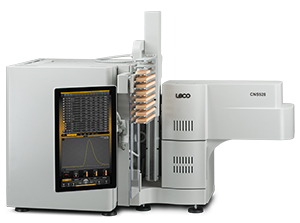
Regardless of what kind of diet you follow, it’s likely that you’re aware of the importance of consuming protein. Protein is an essential macronutrient that is responsible for the growth and repair of muscles and bones, as well as the creation of some hormones and enzymes. It is also an excellent source of energy. Foods that contain the highest amounts of protein include meat and animal products (eggs, milk, dairy products, etc.), but you can also find significant amounts in nuts, legumes, and some grains. Because of its high protein content, meat consumption is at an all-time high, and is projected to continue to rise as consumers become more and more concerned with healthy lifestyles and balanced diets. However, this poses a threat to our environment and concern for animal rights activists. The solution? Cultivated meat.
Cultivated meat (aka cultured meat or lab-grown meat) is essentially the same as meat that is harvested from an animal, except that no animals have to be slaughtered to enjoy this kind of meat. Cells from a living animal are withdrawn and subsequently fed nutrients that cause those cells to proliferate. As these cells multiply, they form the same muscle and fat that is found within the body of an animal. It’s quite an amazing feat, and the benefits of this meat production method are undeniable.
To state the obvious, it is more humane to the animals. But another key benefit is the reduction of greenhouse gas emissions. According to sentientmedia.com, at least 37% of global greenhouse gas emissions are a direct result of animal agriculture. Furthermore, cultured meat is now even being referred to as “clean meat,” because it is grown in a clean, sterile environment, free from exposure to fecal contamination. Lastly, it shows promise to have a longer shelf life and the ability to be customized to meet specific dietary needs. With all that cultivated meat has to offer, it’s no surprise that we are expected to see dramatic growth within the industry. The current $0.23 billion industry is forecasted to grow into a $0.46 billion industry by 2028 with a compound annual growth rate of 18.8%. These trends are anticipated due to the rising consumption of meat worldwide, and consumers becoming more concerned over animal welfare, the environment, and the healthiness of their diets. Although cultivated meat has not yet hit grocery store shelves, we can expect to see that change soon, barring potential bans.
Just a few days ago, US states Florida and Alabama passed legislation that makes producing and selling lab-grown meat within the states illegal. The rationale for these bans includes concerns to the impact of the cattle industry and farmers, as well as fear over what may or may not exist within cultured meat. Currently, cultured meat has not yet been available for purchase in either of those states. While there is a possibility that more states could follow suit, the potential for lab-grown meat reaches worldwide, and many invested companies do not yet feel defeated by these new laws. The industry has continued to grow despite Italy’s ban of lab-grown meat back in 2023. Their main focus is on how they can make cultivated meat an affordable and readily accessible product for consumers.
 Because cultivated meat is still, in essence, meat, it must follow the same strict rules and regulations that are standard for the industry – possibly even more. Protein content, being one of the most significant nutrient components, will need to be accurately assessed. This will play a major role in the economic value of these food products, along with other factors. Since protein determination is so important within the meat industry, be it cultivated or harvested, having an instrument you can rely on has never been more important. The attached application note highlights how LECO’s FP928 Macro Combustion Nitrogen/Protein Determinator (designed for large 1g sample masses) provides accurate and fast protein content in meats and meat products. Fill out the form below for access.
Because cultivated meat is still, in essence, meat, it must follow the same strict rules and regulations that are standard for the industry – possibly even more. Protein content, being one of the most significant nutrient components, will need to be accurately assessed. This will play a major role in the economic value of these food products, along with other factors. Since protein determination is so important within the meat industry, be it cultivated or harvested, having an instrument you can rely on has never been more important. The attached application note highlights how LECO’s FP928 Macro Combustion Nitrogen/Protein Determinator (designed for large 1g sample masses) provides accurate and fast protein content in meats and meat products. Fill out the form below for access.





